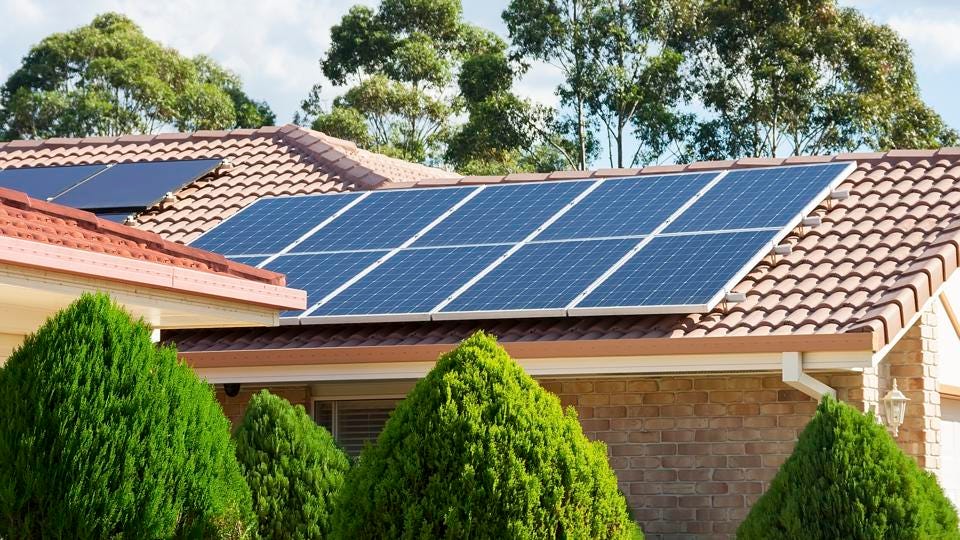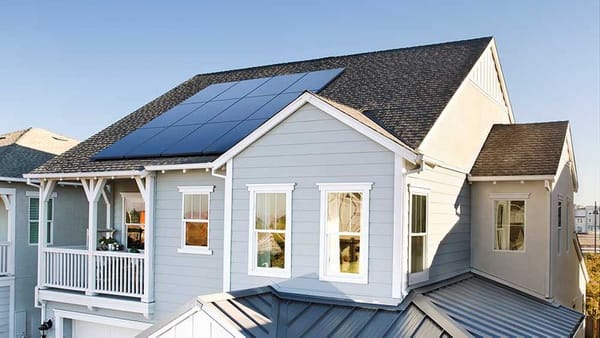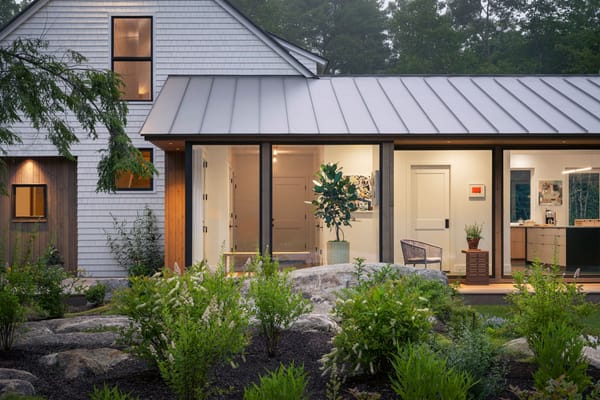As the world becomes increasingly environmentally conscious, many homeowners are looking for ways to reduce their carbon footprint and save money on energy bills.
One popular solution is installing solar panels. Aside from the environmental perks, solar panels have several benefits, including improving your home value and providing more accessibility electricity. If you're considering investing in solar, the cost of panel installation can be a significant. In this article, we will explore the factors that affect the cost of installing solar panels for a 2,500 square foot house.
Solar Panel Cost for a 2,500 sf House
On average, the cost of a solar panel system for a 2,500 square foot house ranges from $15,000 to $30,000. When considering the cost to install solar panels on a 2500 square foot house, several factors come into play, including the type of solar panels, the solar energy system's size, and available solar incentives. Solar panel cost varies widely depending on the solar system you choose, but understanding the different options can help you make the best decision for your home.
The first step in determining how many solar panels you'll need is to assess your energy consumption. A solar installation company can help you evaluate your electricity bills and determine the appropriate size for your solar power system. Typically, a 2500sf house will require a solar panel system ranging from 5kW to 10kW, depending on the household's energy needs and available roof space.
Whether you hire a contractor or decide to install solar panels on your own, these are the key factors affecting the cost of solar panel installation:
- Size of the System: The size of the solar panel system required to power a 2500 square foot house will depend on several factors such as the location of the house, the number of occupants, and the amount of energy consumed. A larger system will be more expensive than a smaller one.
- Type of Panels: The type of solar panels installed will also affect the cost of the installation. There are three main types of solar panels: monocrystalline, polycrystalline, and thin-film. Monocrystalline panels are the most efficient and the most expensive. Polycrystalline panels are less efficient than monocrystalline panels but are less expensive. Thin-film panels are the least efficient and the least expensive.
- Roof Type: The type of roof that the solar panels will be installed on will also affect the cost of the installation. Roofs with a steep pitch or made of materials that are difficult to work with will require more labor, which will increase the installation cost.
- Location: The location of the house will also affect the cost of solar panel installation. The amount of sunlight the area receives will affect the efficiency of the solar panels and the amount of energy they produce. Areas with more sunlight will require fewer panels, which will reduce the cost of installation.
- Incentives and Rebates: Many states and municipalities offer incentives and rebates to homeowners who install solar panels. These incentives can significantly reduce the cost of installation and are often available whether you decide to rent or buy the panels.
The Cost of Installing Solar Panels for a 2,500 Square Foot House
Solar panel installation costs include the price of the panels, labor costs, and additional equipment like inverters and solar batteries. As mentioned, the cost of solar panels for a 2,500sf house is $15,000 to $30,000 on average. This cost can be significantly reduced by available solar incentives, such as the federal solar tax credit, which currently offers a 26% credit on installation costs. Additionally, some states offer solar renewable energy credits, further reducing the overall expense.
When working with solar installers, it's essential to obtain quotes from several solar companies to ensure you're getting the best deal. Keep in mind that while the initial solar costs may seem high, solar panels save homeowners money on their electric bill in the long run, making solar panels worth the investment. With the right solar power system, you can even offset your entire electricity bill, allowing you to enjoy clean, renewable energy while reducing your dependence on the grid.
Solar Panel Maintenance
In addition to the initial installation cost, there are ongoing maintenance costs to consider. While solar panels require minimal maintenance, they do need to be cleaned periodically to maintain their efficiency. The cost of cleaning will depend on the size of the system and the difficulty of accessing the panels.
However, despite the initial investment, installing solar panels can be a smart financial decision in the long run. Not only will they reduce your carbon footprint, but they can also significantly reduce your energy bills. In many cases, homeowners can recoup the cost of installation within 5 to 10 years, after which they will continue to save money on energy bills.
Conclusion
Understanding solar panel costs for a 2,500 sf house requires a comprehensive assessment of various factors. Key among them is the solar system size, which, according to the National Renewable Energy Laboratory, significantly impacts the overall expense. The average solar panel cost can vary, influenced by the type of panels, such as monocrystalline solar panels, and the specifics of residential solar installations.
It's crucial to engage a reputable solar company to accurately gauge your energy usage and recommend the optimal size and type of solar systems. Additionally, local incentives can play a pivotal role in reducing costs. Per watt pricing gives a clear picture of the investment needed, making the consultation with a skilled solar installer imperative for an accurate estimate of the solar panel installation cost. Furthermore, when considering the transition to solar energy, it's essential to weigh the long-term financial benefits against the upfront solar panel installation cost.
The efficiency and longevity of residential solar panels mean that over time, the energy savings can significantly offset the initial outlay. Prospective solar energy system adopters should also explore local incentives and federal tax credits, which can substantially lower the per watt cost of installation. Ultimately, partnering with an experienced solar installer can ensure that you benefit from the most cost-effective and efficient solar solution for your home, making the switch to solar a wise environmental and financial choice.






